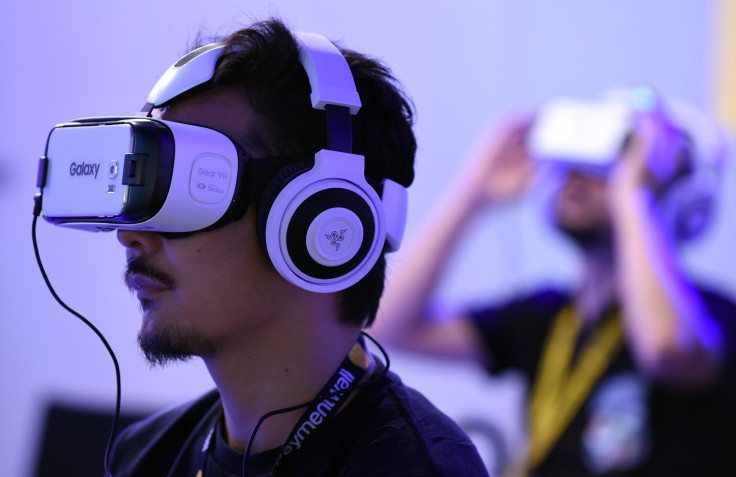Techies Date Virtual Reality Girlfriends At Hong Kong Fair

A new virtual reality girlfriend app garnered buzz this week at the annual Ani-Com and Games fair in Hong Kong. The AFP reported players could choose from four virtual models and go on VR vacations with the avatars through an app called "leoi yau," or "VR travel friend" in Cantonese. The female avatars went with users to VR karaoke, hot springs and cafes. Users flirt with these characters as part of the game’s story arch.
"We want to allow more people to try out what it's like to date a girl because there are a lot of Otakus [anime and manga super fans] who don't know how to communicate with girls," Margaret Ming, the Hong Kong-based app's communication officer, told AFP. "This game can teach them how to get to know girls.”
Read : What Are Standalone VR Headsets And How Will They Change Gameplay?
Virtual girlfriend games are increasingly popular, especially in Asia, but not exclusively. As artificial intelligence improves and makes increasingly realistic robots and dynamic chatbots, so do virtual dating games. The rise of cheaper VR and augmented reality gadgets have similar effects. The developer behind an adult game called VR Konojo, or "VR Girlfriend," tweeted on July 11 that sales for his game nearly doubled thanks to a recent $100 discount on Oculus Rift VR headsets.
Just like the fair in Hong Kong, many players prefer to go on virtual dates out in public.
In Japan, a popular spot called Blue Leaf Cafe reportedly provided customers with an AR dating simulation during a five-day marketing campaign with the animated character Hatsune Miku. Adult game developer Hibiki Works once even performed a VR wedding ceremony between a Japanese man and his anime dreamgirl. Thousands of men around the world routinely play a virtual dating game called “Love Plus,” simulating a romantic relationship with a character called Rinko.
Are Virtual Dating Simulations Only For Men?
As virtual girlfriend games spread and diversify, some problematic aspects of various game designs display blatant sexism.
Refinery29 reported the VR program "Dating Lessons" referred to women as targets and reduced female characters to sex objects. “Each lesson takes a brief turn for the frighteningly manipulative, leaving me with some serious questions,” video game critic Scott Hayden wrote about “Dating Lessons.”
However, this gaming genre isn’t just for “lonely men,” as headlines often proclaim. According to CNN, the romance gaming company Voltage has over 88 unique titles and 50 million players worldwide, predominantly young women. Dating simulations can also function like interactive novels that encourage deep engagement with virtual characters. Swedish photographer Loulou d’Aki said she found media coverage about romance games unfairly played on stereotypes. Both men and women of all personality types enjoy romantic fantasies.
Read : Humans vs. AI: The History And Future Of Artificial Intelligence
There is no shame in players exploring their emotional capacity while practicing social skills, as long as players use role-play in moderation and choose games that avoid narrative devices centered around exploitive seduction. Mike Amerson, creator of the My Virtual Girlfriend game, told Business Insider he hopes players never use his game as a replacement for relationships with real women. The truth is, everyone wants to express affection and sometimes enjoy feeling loved in return.
© Copyright IBTimes 2024. All rights reserved.











